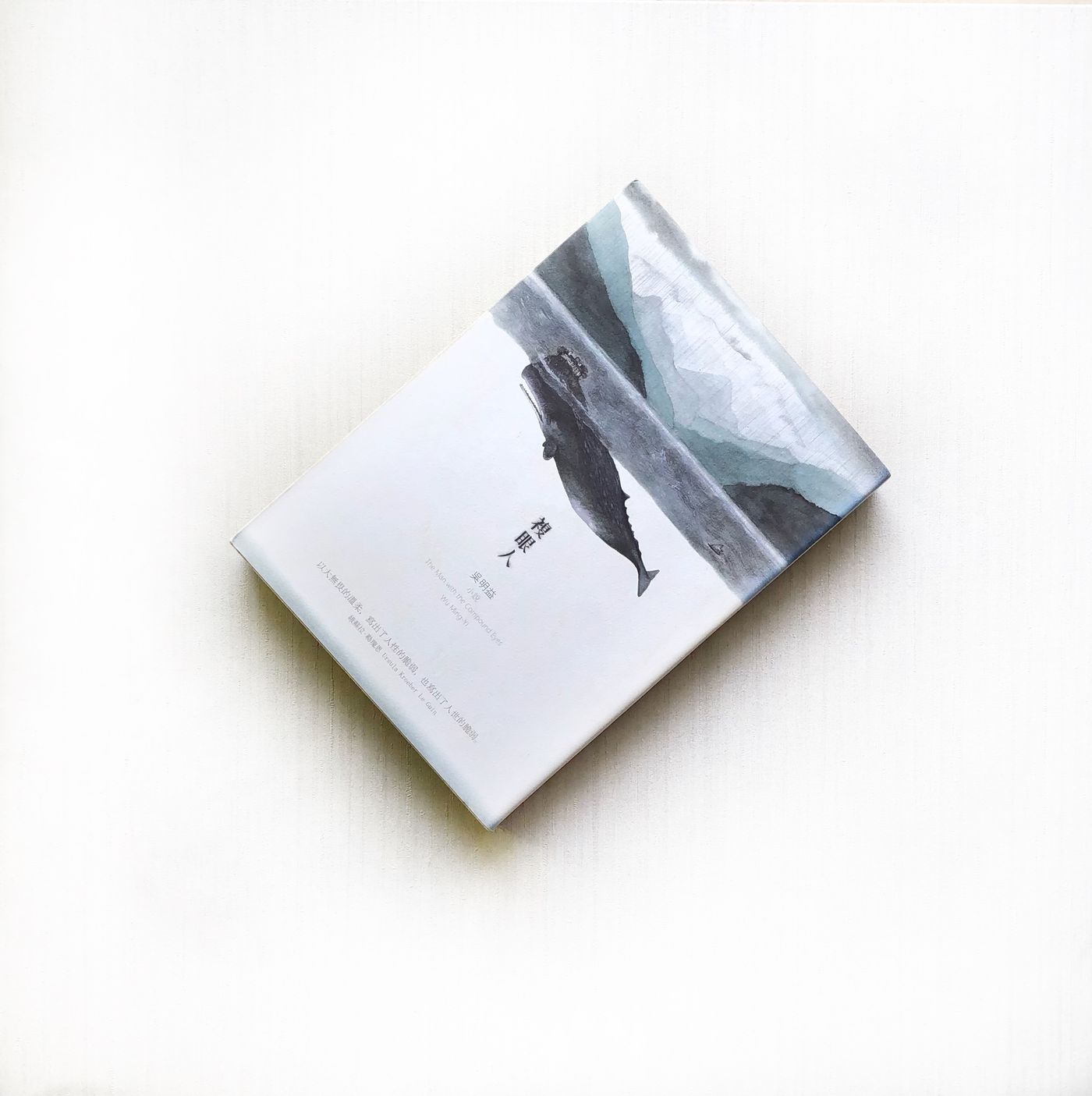
前國際新聞編譯,韓劇、書籍成癮人士。 每週分享讀書心得,偶爾介紹韓國文化。
[Reading Notes] Seeing the reality we pretend to be invisible from the compound eyes of the novel - "The Man with Compound Eyes"
"Actually, nature is not cruel. At least it is not particularly cruel to human beings. Nature does not fight back, because things without a will will not 'count back'. Nature is just doing what it should do (abbreviated later)..."

Whether it's a disaster or a "dystopian" theme, what makes this kind of work fascinating is that, in addition to the usually grand and grand scenes, it's based on known facts, but it is clear that the chances of these things happening are extremely low. The "sense of security" may also be an important factor. Just like playing a game, it is an experience, but you don't need to take the risk of losing anything. However, "The Man with Compound Eyes" is a completely different work, in which the false and the real are still intertwined, but the real part is the disaster.
The 'Wayovayo' gemstone embedded in a novel about nature and human beings
If "Land of the Bitter Rain" is about language and communication, "The Bicycle Theft" is about Taiwan's history and the rise and fall of local industries, and "The Magician on the Flyover" is about the magical memories of old Taipei people, then "The Man with Compound Eyes" is about Composed of a novel about a garbage island hitting Taiwan and a short story about the memories of the Butterfly Chasers, it may be classified as a conflict between science, human beings and nature. Although the exquisite natural writing and the soft tone with a hint of depression are still there, the gem "Wayou Wayou" created by Wu Mingyi in the long work makes "The Man with Compound Eyes" even more distinctive.
The Vayo Vayo people believe that the world is the sea, and Kabang (meaning "God" in Vayo Vayo) created this island for them, like a small empty clam shell in a large water basin . The island of Vayo Vayo drifts around in the sea with the tide, and the sea is the source of food for the Vayo Vayo people. But some species are incarnated by Kaban. For example, a black and white mixed fish called "Asamo" is sent by Kaban to spy on and test the Vayowa people at any time. Worry people are classified as inedible types.
A nation suffering because of greed has its own language, myths, beliefs, and various unimaginable customs. Even if there are magical plots in other works, Vayo Vayo is a rare and completely fictional existence. And because of this special ethnic group, the Taiwanese islanders in the book have another object of comparison. In addition to making the common spectrum of "indigenous people-flat people" and "nature-development" more complicated, it also makes use of the three The intersection between the people (the Flatlanders, the Aboriginal people and the Vayo Vayo) creates more layers and points of conflict in this work exploring the environment.
Of course, since the title of the book is "Compound-eyed Man", the role of the compound-eyed man must be heavy. In addition to running through the two works, it is omniscient and omnipotent, but it is outside the world. It can be said to be the incarnation of God and nature, but it seems to be just a bystander. It is equivalent to the "magician" in "The Magician on the Flyover". The author gives it a key identity in the novel, but it is difficult to explain what it is. reflection.
Why? Why? Why?
(why why why?)
I think you land people waste a lot of time asking yourselves why
(I think you shore folks waste a lot of time asking yourselves why)
- "The Pianist at Sea, 1998"
Because of the pursuit of knowledge and progress, human beings also lose themselves because of this
In the movie "The Pianist at Sea", the 1900s who grew up on the boat don't understand why people on the shore always like to get to the bottom of things, but miss the opportunity to enjoy it; for the author, "Compound Eye Man" also seems to echo this statement , While discussing the ecological catastrophe caused by human beings, the author also seems to question that human beings always want to "explain" various phenomena, but lose their respect for nature in the process, and even want to create scientific, economic and other tools to prove I have the dominance, and I finally get lost in it. I don’t realize my insignificance until a disaster occurs, and it attracts backlash.
As the name suggests, "The Man with Compound Eyes", its eyes are like countless small windows, allowing people who look into it to see the various states of the world, and the work "Man with Compound Eyes" may be a similar existence, but through the novel's The plot, what readers can see at the same time is what is happening now, a fictional nation that is similar to the past, and a disaster that is likely to occur in the future. There are also some blank parts. After reading this book, we will again How to choose among the various options to continue the rest of your life.
Eslite Online: https://reurl.cc/7eRWa5
Jinshitang Online Bookstore: https://reurl.cc/ZrXzKa
Blog from: https://reurl.cc/g0ZEVQ
Reading Book Life: https://reurl.cc/Ddm8zj
Read the second-hand book: https://reurl.cc/OpVeZD
Like my work?
Don't forget to support or like, so I know you are with me..
Comment…